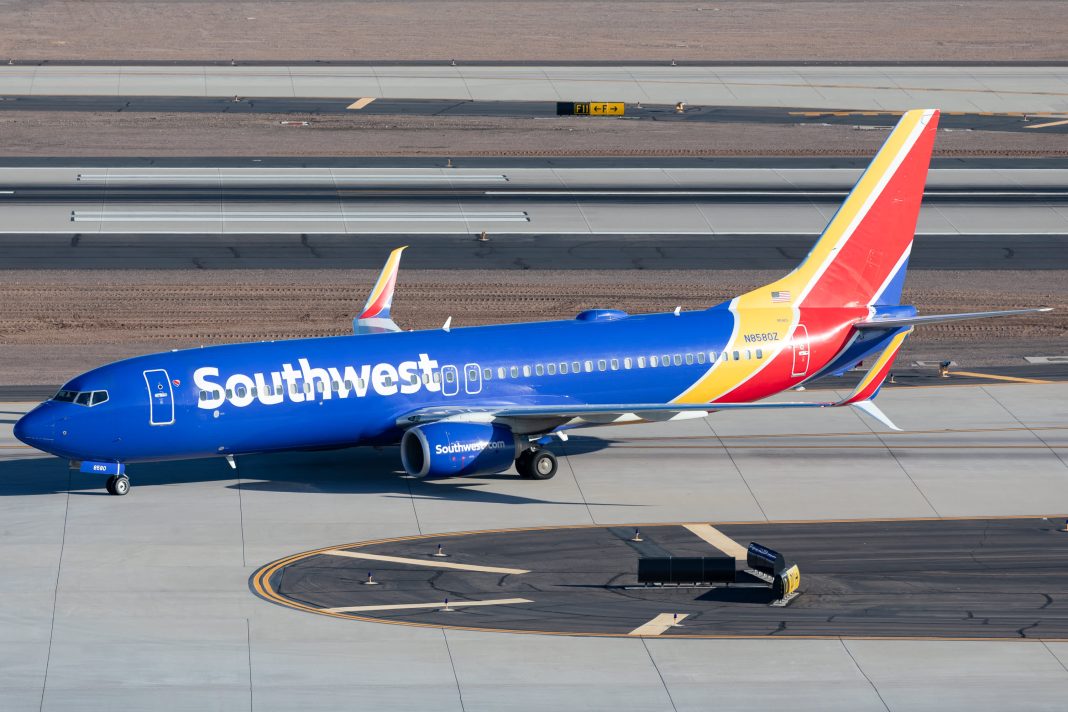In recent developments, Southwest Airlines is navigating a pivotal moment in its corporate journey, marked by strategic shifts and a response to external pressures, particularly from activist investor Elliott Investment Management. As the airline prepares for a critical investor day at its Dallas headquarters, the atmosphere is charged with anticipation and scrutiny. CEO Bob Jordan and his executive team are keen to articulate a robust vision for the future, seeking to reassure stakeholders of their strategic direction in a rapidly evolving industry.
On July 2, 2024, at Phoenix Sky Harbor International Airport, the airline announced an upward revision to its third-quarter revenue forecast, now anticipating an increase in unit revenue by as much as 3% compared to the previous year. This is a noteworthy pivot from earlier projections, which had suggested a potential decline of up to 2%. Such a turnaround indicates Southwest’s resilience and adaptability in a competitive landscape, particularly as air travel continues to rebound post-pandemic.
To bolster its leadership team, Southwest has appointed Bob Fornaro to its board of directors. Fornaro is no stranger to the airline world, having previously served as CEO of Spirit Airlines and having played a pivotal role in the merger with AirTran in 2011. His extensive experience and familiarity with Southwest’s operations could provide the company with valuable insights as it navigates these turbulent times.
The pressure on Southwest is palpable, particularly following Elliott’s calls for leadership changes. The activist firm, known for its aggressive strategies to enhance shareholder value, has been vocal about its demands for improved financial performance and governance reforms. This external influence is driving Southwest to not only defend its existing strategies but also to innovate.
In a bid to enhance revenue streams, Southwest is overhauling its long-standing business model, which has been in place for more than fifty years. The introduction of assigned seating and extra-legroom options represents a significant shift in how the airline conducts its operations. By catering to diverse passenger preferences, Southwest aims to improve customer satisfaction while simultaneously driving additional revenue. These changes align with broader industry trends where airlines are increasingly adopting flexible pricing and seating arrangements to optimize profitability.
Recent studies on consumer behavior in the airline industry suggest that travelers are willing to pay a premium for enhanced comfort and convenience. According to a report from the International Air Transport Association (IATA), the demand for premium services has surged, indicating that airlines that adapt to these preferences may find themselves at a competitive advantage. Southwest’s strategic positioning to offer such options could be a game-changer, particularly as it seeks to differentiate itself in a market where legacy carriers and low-cost airlines vie for the same customer base.
As stakeholders await the outcomes of the investor day presentation, it is clear that Southwest is at a crossroads. The airline’s ability to articulate a clear path forward, backed by data-driven strategies and an understanding of market dynamics, will be crucial in addressing Elliott’s concerns and restoring confidence among investors. In the ever-evolving aviation landscape, where agility and customer-centric approaches are paramount, Southwest’s future hinges on its willingness to adapt and innovate while staying true to the values that have defined it for decades.
As the industry continues to grapple with challenges such as labor disputes and operational costs, the actions taken by Southwest now will likely resonate throughout the airline sector. The stakes are high, and the outcome of this strategic pivot could redefine not only Southwest’s trajectory but potentially influence the broader airline market as well.


